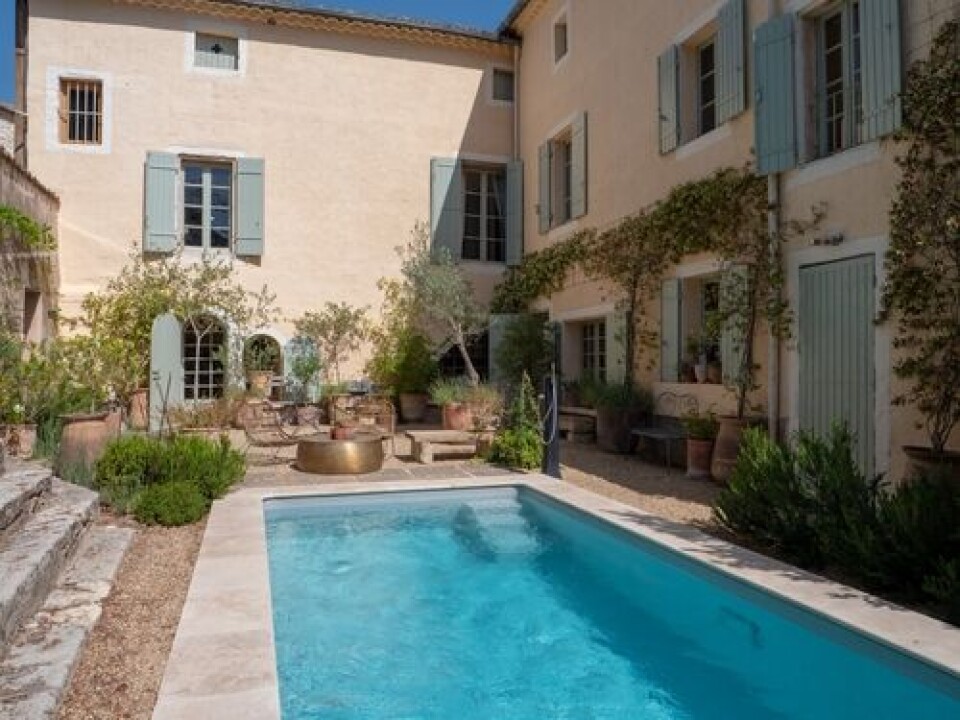-
How many Americans live in Paris - and where else are they choosing in France?
Over a quarter of all US nationals in France live in the capital city
-
Price rises for Netflix in France
The Standard (with ads) and Premium packages are increasing by €24 a year
-
Leclerc supermarkets to sell car fuel at cost price for Easter
The initiative will apply to diesel, petrol, and LPG
Dozens of French mairies employing private firms to track tax fraud
Stretched budgets are prompting municipal authorities to take tougher action over unpaid taxes relating to pools, extensions and second homes

Mairies across France are increasingly calling on private firms to detect cases of property tax fraud in the country – including undeclared pools, second homes and property extensions.
Not reporting these can enable some property owners to (illegally) save on payments but it can cost the local municipality hundreds of thousands of euros in unpaid local property taxes.
This increased scrutiny means that formerly undiscovered or accidental omissions by residents are now being picked up, alongside intentional cases of fraud.
The practice of hiring private firms to detect tax anomalies is becoming more widespread, a report by Le Parisien has found.
Municipalities have been suffering from the effects of Covid and the end of taxe d’habitation for all main homeowners last year (second-home owners must still pay it). Most homeowners must still pay taxe foncière.
Read more: Taxe foncière France’s local property tax: Who pays and the exemptions
This squeeze on budgets has led authorities to employ these companies in a bid to boost revenue from undeclared taxable property. The companies use software that helps detect anomalies in tax records, and staff also visit properties in person to check if the records held are accurate.
If an anomaly is detected, the company sends name and address details to the local authorities who can then request departmental tax authorities, la Direction départemental des impôts, to follow up.
The companies are paid a fixed percentage of the money recovered.
The aim of these changes is said to be that it will ensure that each home is paying the right amount of taxe foncière for the property as opposed to trying to catch out or prosecute individuals who are not paying the correct amount.
Many of the communes employing private firms are in departments favoured by second-home owners, such as Var or Haute-Corse, where it is thought that some owners of these second properties may not be contributing the correct taxes to the communes.
What is assessed?
The Le Parisian article highlights a number of anomalies the private firms consider.
These include:
House classifications, which for local property tax purposes are on a scale from very luxurious (1) to uninhabitable (8) – some homes are still mistakenly classed at 7 / 8 on the scale due to significant renovation works not having been declared
Undeclared second homes – around 30% of homes recorded as being vacant are actually second homes incorrectly declared, according to financial technology company Ecofinance. This can negatively affect communes with high second home-ownership, since they may be entitled to charge a taxe d’habitation surtax on second homes which is not applicable to merely ‘vacant’ homes.
Undeclared swimming pools – the construction of swimming pools at a property increases its overall value so also increases the amount of the local property tax payable.
Homes with the wrong heating or water service declaration – when the first assessments were made in 1970, connection to these services was not always guaranteed in rural areas but in 2023 it is highly unlikely for homes not to have these. Not having them would lower the home’s value (and thus its property tax bills), or potentially make it be considered uninhabitable and therefore not eligible for taxe d’habitation.
Incompatible home layouts – for example, where a bathroom is indicated on the tax office records, but no shower or bathtub. Property tax payments increase for equipment such as baths, stoves, etc.
€45,000 from wrong heating declarations
Companies which perform this role include Finindev and Ecofinance. Around 20 local councils have signed with Finindev, while more than 150 have signed with Ecofinance.
Ecofinance told Le Parisien that it does not accept a job without first estimating the undeclared taxes it believes it can recover.
The company has had major success already, with one commune in Meurthe-et-Moselle, Longuyon, stating that it was able to recover €45,000 from properties that had been wrongly declared not to have heating; and €32,000 from properties wrongly declared as uninhabitable (and thus not taxable).
When contacted by Le Parisien about the practice, the finance specialist for the Association des maires du Tarn admitted that the use of private companies in this way was “not very politically-positive” and that it “doesn’t make sense to talk about it much to taxpayers”.
The association nonetheless suggests the use of the software and private companies to many mayors in its area, “many of whom are looking for new ways to boost income”, the specialist said.
But a spokesman for the tax section of the CGT union also told Le Parisien that the data collected by companies is sometimes 'taken at face value and officials have to enter changes without verification'. This could lead to "a significant number of disputes".
In 2021, it was revealed that tax officials had been trialling a project with Google to spot undeclared pools by using aerial photography. This proved a success and was rolled out nationwide from September 2022.
Related articles
All owners of French properties must fill in this new tax-site form
French tax website now also shows properties owned: how to check
French tax office begins to use aerial shots to find undeclared pools
Tax and planning: When and how to declare a swimming pool in France
























